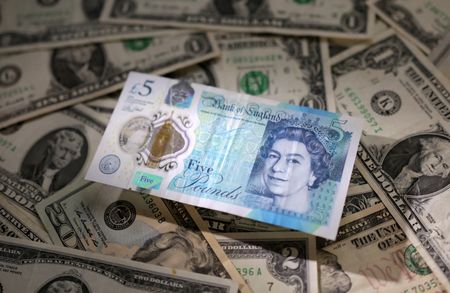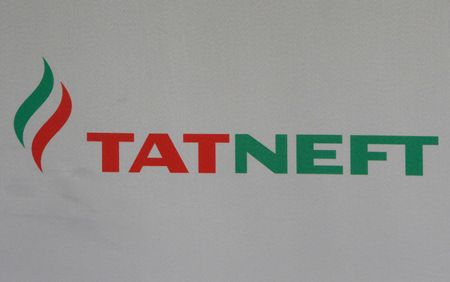LONDON (Reuters) – The pound eased on Tuesday, edging lower against both the dollar and the euro, as investors booked some profit on sterling’s largest monthly rally in 10 months ahead of a key read of the U.S.
jobs market later this week.
Data on Tuesday showed summery weather in August helped boost UK consumer spending, as shoppers splashed out on food and drink, although this did little to support the pound.
Sterling, which gained 2.13% in August in its strongest monthly increase since November 2023, was down 0.2% against the dollar at $1.31165 in early trade, some 1.2% below last week’s two-year high of $1.3269.
The euro was up 0.1% against the pound at 84.295 pence, rising for a third consecutive day after having hit a one-month low late last week.
Barclays said on Tuesday consumer spending on its credit and debit cards rose by 1.0% year-on-year in August, bucking two months of decline.
A separate survey from the British Retail Consortium also showed spending in shops increased by 1.0% in annual terms in August, the strongest uptick since March.
The reports chimed with various consumer and business surveys that suggest Britain’s economy will expand at a solid pace through the second half of the year, albeit slowing from the rates seen earlier in the year as the economy rebounded from a shallow recession.
“We’re finally back at a point where it is at least possible to infer that solid growth in retail values might be a function of underlying volumes improving, rather than just reflecting higher prices,” strategists at Lloyds said.
BEST PERFORMER
The pound is by far the best performing major currency against the dollar this year, having risen by 3.1% so far, compared with a 0.2% rise in the euro, the runner-up, and the Norwegian crown, whose 4.5% decline so far has overtaken the 3.6% fall in the Japanese yen.
The principal driver is the expectation among traders that UK rates will take a lot longer to meaningfully fall than those in the euro zone or the United States.
The Bank of England meets in two weeks’ time to set monetary policy, but the derivatives market shows traders see little chance of another 25-basis point cut to follow June’s.
November is the most likely meeting for another.
In six months’ time, markets show traders expect British rates to be around 75 bps lower than where they are right now, compared with an expected drop of 120 bps in U.S.
rates by then.
(Reporting by Amanda Cooper; Editing by Gareth Jones)









